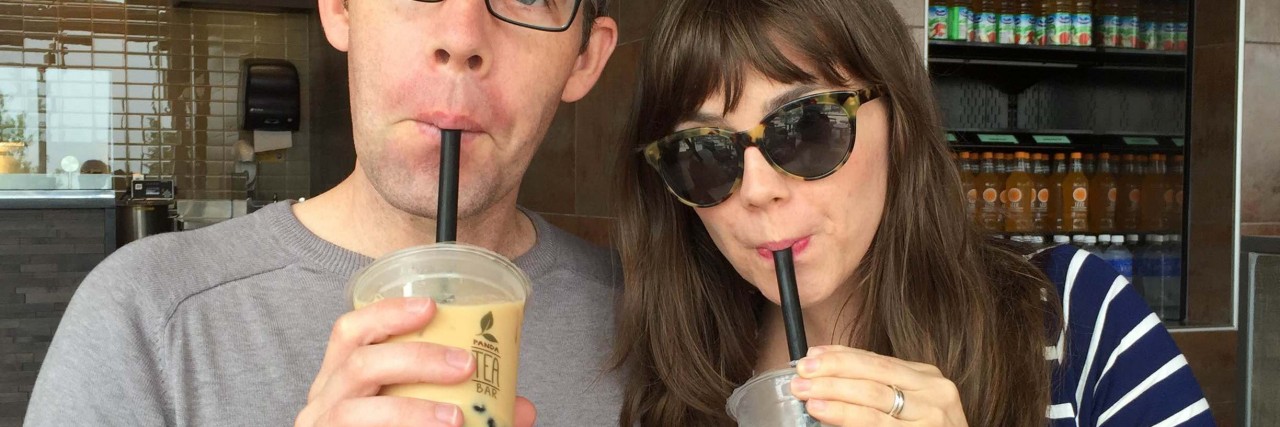The other day, I was feeling kind of meh. It wasn’t depressed exactly — just the opposite of confident. Sometimes, when I have several days in a row in which I get migraines and I don’t socialize, I can feel a sort of malaise that affects my confidence about work.
When my husband came home, he clearly noticed I wasn’t feeling awesome. After listening to me say I wasn’t feeling very confident, his first instinct was to reassure me that I have lots of reasons to feel good about myself and my work.
While in hindsight I can see his lovely intentions, at the time I just got grumpy. His attempts to cheer me up just felt like the opposite of empathy. They weren’t meeting me where I was at.
He was understandably surprised at my grumpiness — after all, he was trying to tell me positive things about myself.
After we explored our respective responses a bit, I got to this: “You know what I would have loved? I would have loved if you had asked me at the beginning, ‘Do you want to be cheered up, or do you want help exploring your feelings?’”
He totally got this right away. He’d experienced that, too — times when attempts to be “cheered up” just landed as fixes rather than empathy. When you’re still exploring how you actually feel about something, being cheered up can feel like fixing something when you don’t know what’s broken — confusing and unhelpful.
We both could think of times when we actually wanted to be cheered up. These were times when we were clear on how we felt, but wanted a break from those crappy feelings or wanted some reassurance that we were OK.
We realized the choice was the key thing. We like being asked what we need because a. it’s more helpful, and b. it’s empowering to have choice when you feel crappy, since crappy feelings can feel disempowering.
Questions like these also implicitly acknowledge that no one should be expected to be a mind-reader.
Not all situations have a clear corresponding behavior on the part of one’s partner or caring friend. The asking makes space for both people in the exchange to get clarity on what’s most helpful in the situation.
We also talked about how this question is similar to one of my other favorite questions: “Are you wanting empathy or strategy?” The answer can relieve the listener of needed to fix it and the person having all the feelings can get more choice simply by hearing it.
Now, this question is a part of both our repertoires.

If you’re keen to try this in your own relationships, here are a few suggestions to smooth that path.
When you ask someone, “Do you want to be cheered up or do you want help exploring your feelings?” they might respond with, “I don’t know.” Sometimes we don’t know because we’ve never been asked that question before. It might feel awkward or uncomfortable at first.
New language is like new shoes — sometimes it has to be broken in before it gets comfortable.
It also might just take someone a minute to answer honestly. Sometimes, it helps to rephrase the question. Here are a couple of alternative phrasings (feel free to mix and match):
1. “Do you want to be reminded of the ways in which you are amazing or do you just want me to be present with the crappy stuff you’re feeling now?”
2. “Do you want help getting clear on what you’re feeling or does this feel like something you want help climbing out of?”
3. “Would you enjoy some distraction from how you’re feeling, or do you want me to help you process?”
You can also follow up with, “Do you want clarity and then some cheering up?” Just like with the empathy/strategy question, sometimes you want both — you just need one before the other.
For example, sometimes I love a good strategy, but it only resonates with me after I feel fully empathized with. The same goes with cheering up – I tend to only want it after I feel understood.
I’ll also add that sometimes “cheering up” gets a bad rap, but there’s nothing wrong with a little distraction. If your whole emotional MO is distraction, that might not be super healthy. But if in the process of sadness or grief you find yourself needing a little break now and again, I think that can be self-care at its finest.
The key with all of this is to meet people where they’re at. Asking these sorts of questions can help you get the data you need to find out where that is so you can support them.
Often, the best way to help someone is not to make them feel “better,” but to help them feel “lighter.” Feelings can be heavy, but when we share them with an empathic person, we can feel less weighed down by them.
Questions like these also help communicate that you’re willing to listen fully to what’s going on in their emotional world, without evaluating or trying to change their state. That kind of acceptance can help pave the way for vulnerability, and as a result, connection.
Connection is what most of us are after anyway. When we get better tools — like better questions — I think it just helps us get there a little more efficiently.
Follow this journey on Kate McCombs.
The Mighty is asking the following: Share a conversation you’ve had that changed the way you think about disability, disease or mental illness. Check out our Submit a Story page for more about our submission guidelines.

